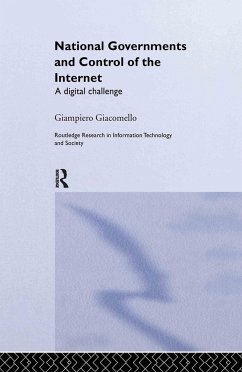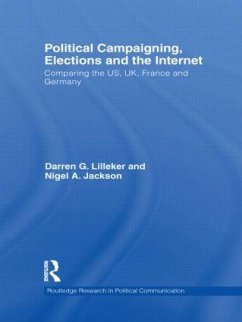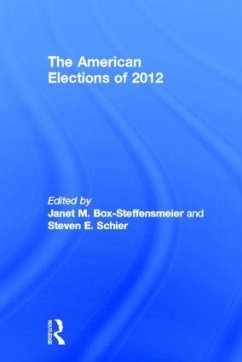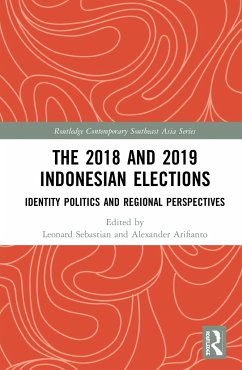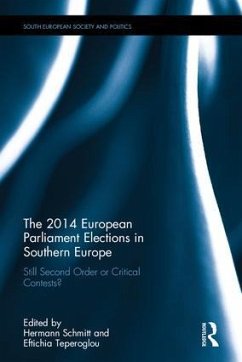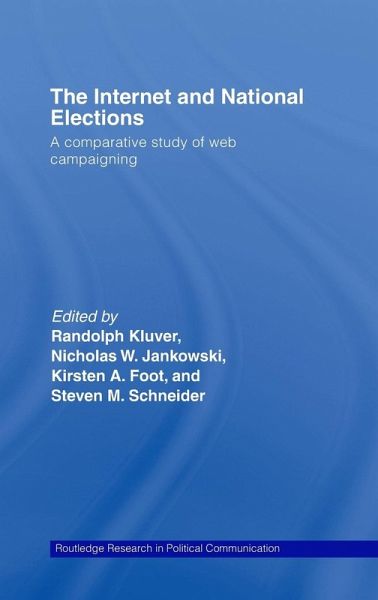
The Internet and National Elections
A Comparative Study of Web Campaigning
Herausgeber: Kluver, Randolph; Foot, Kirsten; Jankowski, Nicholas

PAYBACK Punkte
61 °P sammeln!
This volume provides a comparative analysis of the use of the World Wide Web in countries around the world for political campaign purposes. Drawing upon a common conceptual framework - the 'Web sphere,' and a shared methodological approach called Web feature analysis - in order to examine how the Internet is used by a variety of political actors during periods of electoral activity. Research teams around the world conducted analyses in technologically advanced nations, as well as those with low Internet diffusion, and a variety of countries in the middle range of network penetration, and from ...
This volume provides a comparative analysis of the use of the World Wide Web in countries around the world for political campaign purposes. Drawing upon a common conceptual framework - the 'Web sphere,' and a shared methodological approach called Web feature analysis - in order to examine how the Internet is used by a variety of political actors during periods of electoral activity. Research teams around the world conducted analyses in technologically advanced nations, as well as those with low Internet diffusion, and a variety of countries in the middle range of network penetration, and from a variety of political and cultural contexts. The book represents an important contribution towards gaining a cross-national understanding of the current and emerging impacts of the Internet on political practice. To that end, the contributors collect and analyze data related to the structure for political action and information provision. They examine twelve types of political actors engaged in elections, including candidates, parties, non-governmental organizations, government, media and individual citizens. Exploring the complex dynamics between politics, culture, and information technology at both the national and global levels, The Internet and National Elections will be of interest to students and researchers of political science, communication studies, international relations, media and Internet studies.





